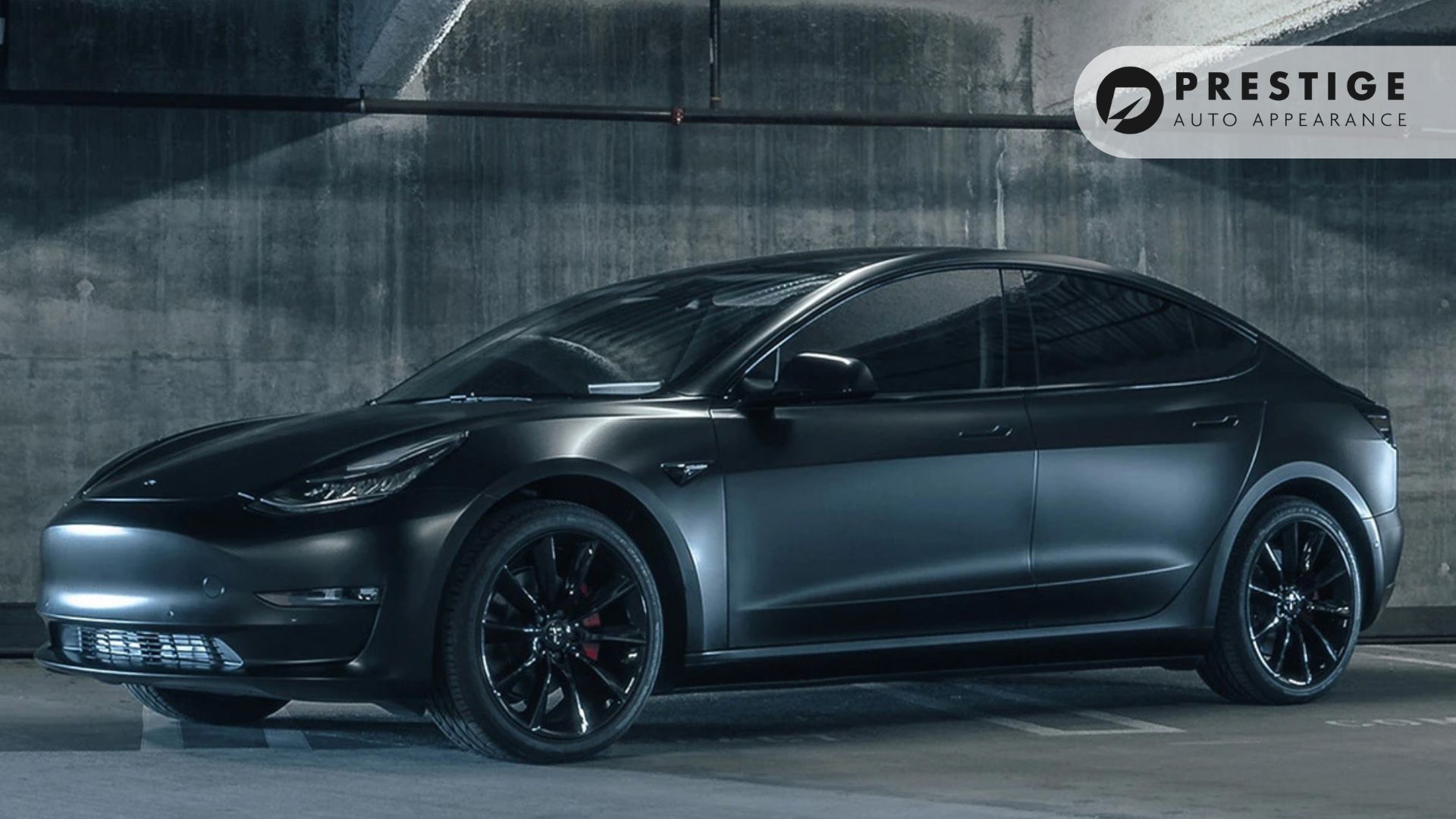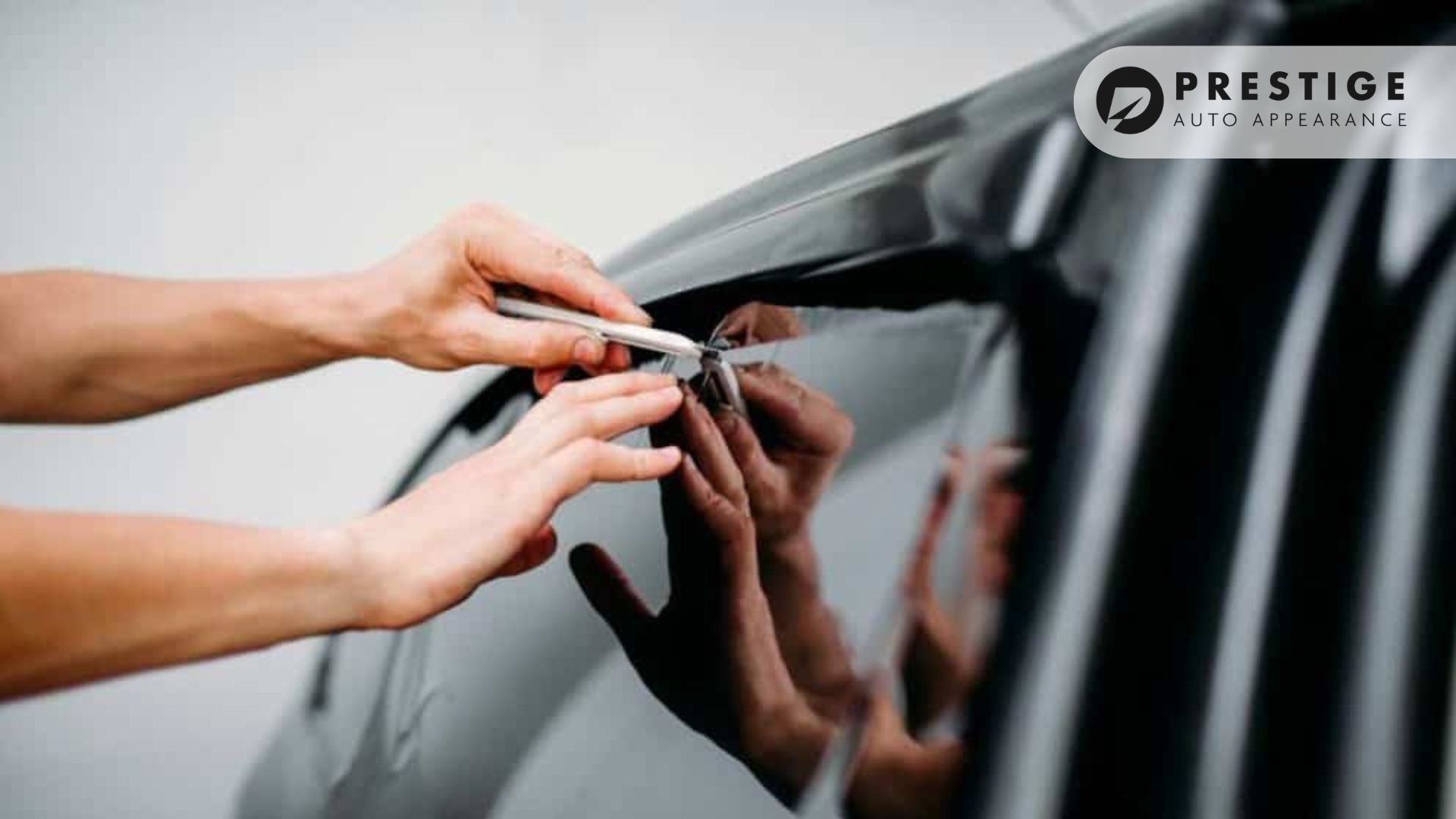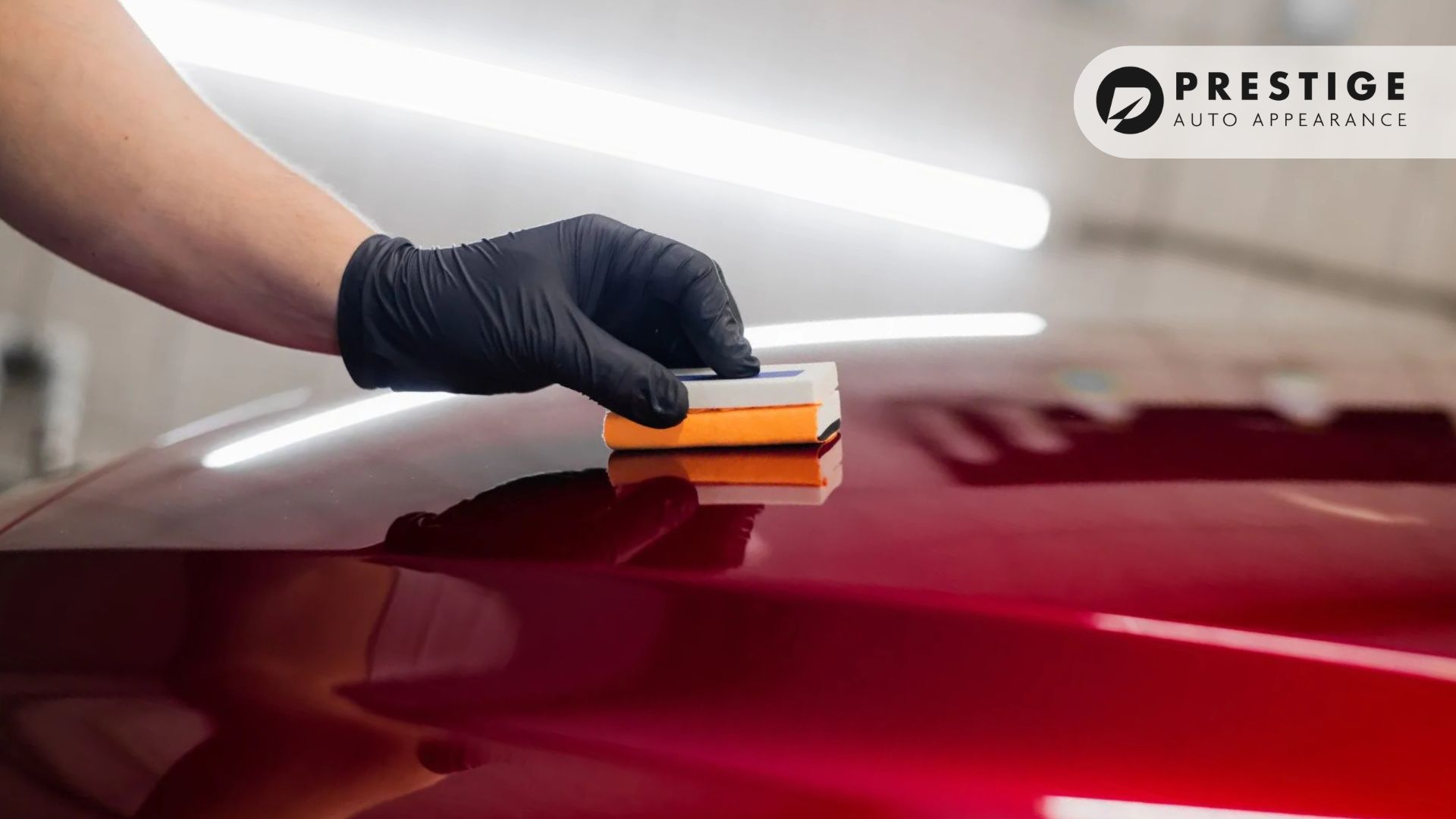As a car owner, you know how important it is to keep your vehicle in top condition. One way to do this is to protect it from harmful UV rays. This is where window tinting comes in. We will discuss the importance of UV protection for your car and how window tinting can help.
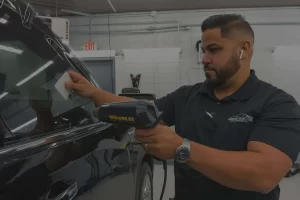
What is UV radiation?
Before we dive into the importance of UV protection for your car, it’s essential to understand what UV radiation is. UV radiation is a type of electromagnetic radiation that comes from the sun. It has both positive and negative effects on our bodies, and it’s crucial to limit our exposure to it.
The Harmful Effects of UV Radiation on Your Car
UV radiation can have a significant impact on your car’s exterior and interior. Prolonged exposure to the sun can cause paint to fade, crack, and peel. It can also cause the dashboard and other interior components to crack and fade, reducing the value of your car.
The benefits of window tinting
Window tinting is an effective way to protect your car from harmful UV radiation. Here are some of the benefits of window tinting:
UV Protection
One of the primary benefits of window tinting is UV protection. A Window tint uv protection film can block up to 99% of harmful UV rays, keeping your car’s interior and exterior safe from sun damage.
Heat Reduction
Window tints can also reduce the amount of heat that enters your car. This is particularly important during the summer months when temperatures can rise to dangerous levels.
By reducing the amount of heat that enters your car, window tints can make your ride more comfortable and reduce the strain on your air conditioning system.
Enhanced Privacy
Window tints can also enhance your privacy. By reducing the amount of light that enters your car, window tints can make it difficult for people outside your car to see inside. This can be particularly beneficial if you carry valuable items in your car.
Reduced Glare
Window tints can also reduce the amount of glare that enters your car. This can make it easier to see when driving in bright sunlight, reducing the risk of accidents.

Types of Window Tints
There are several types of window tints available on the market. Here are some of the most popular ones:
Ceramic window tint
Ceramic window tints are made by applying a layer of ceramic particles to the window. They are the most effective at blocking out the sun’s rays and can also reduce the amount of heat that enters your car. They are also durable and do not interfere with electronic devices.
Hybrid window tints
Hybrid window tints combine multiple layers of different materials, such as dyed film and ceramic particles, to provide a balance of heat and UV ray blocking as well as aesthetic appeal. This type of tint can be a good option for those who want a compromise between cost and effectiveness.
Kavaca Nano-Ceramic Window Tint Films
Kavaca window tint films are engineered with nano-ceramic particles and infrared-blocking materials, which can keep up to 96% of heat-producing IR rays from entering your vehicle.
These window films are designed with proprietary technology that ensures zero signal interference and superior clarity. They are available in multiple VLTs, and each one is backed by a lifetime warranty.
KAVACA window tint has been extensively tested and designed to provide the best looks and performance and is manufactured with superior-quality materials.
Choosing the Right Window Film
When choosing a window film for your car, it’s important to consider your specific needs and preferences. Here are some factors to consider:
Tint Percentage
The tint percentage refers to the amount of light that can pass through the window tint. The lower the percentage, the darker the tint.
A good range to consider is between 35% and 50% for the front side windows and 20% to 35% for the rear side and rear windows. It is important to check the legal requirements in your state before choosing a tint percentage.
Legal Requirements
Before you choose a window tint, it’s important to check the legal requirements in your state or country. Some states have specific laws regarding the darkness of window tints, and you may face a fine or penalty if your tint is too dark.
Quality
It’s important to choose a high-quality window tint to ensure maximum protection and durability. Cheaper tints may not provide the same level of protection for vehicle windows and may fade or peel over time.
Installation and maintenance
Once you’ve chosen the right window tint for your car, it’s important to have it installed by a professional. Improper installation can result in bubbles, wrinkles, and other issues that can reduce the effectiveness of the tint.
It’s also important to maintain your window tint by cleaning it regularly with a soft cloth and avoiding abrasive or ammonia-based cleaners.
Protecting your car from harmful UV rays is essential for maintaining its value and keeping it in top condition. Window tinting is an effective and affordable way to achieve this goal, providing UV protection, heat reduction, enhanced privacy, and reduced glare.
By choosing the right Window tint Allentown and having it installed professionally, you can enjoy these benefits and protect your car for years to come.
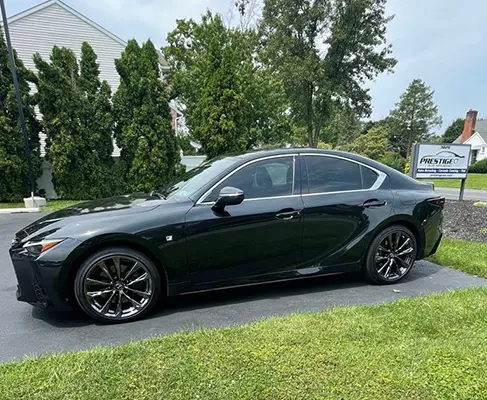
Frequently Asked Questions (FAQs)
Is window tinting legal in all states?
Window tinting is legal in most states, but the darkness of the tint may be regulated. Check the laws in your state before installing window tint.
How much does it cost to get my windows tinted?
The cost of window tinting varies depending on the type of tint, the size of your car, and the location of the installation. It can range from $100 to $500 or more.
How long does window tinting last?
Window tinting can last for several years if properly installed and maintained.
Can I tint my windows myself?
It’s possible to tint your windows yourself, but it’s recommended to have it done professionally to ensure proper installation and maximum effectiveness.
Can window tinting improve the fuel efficiency of my car?
Window tinting can reduce the amount of heat that enters your car, reducing the strain on your air conditioning system and potentially improving fuel efficiency.



